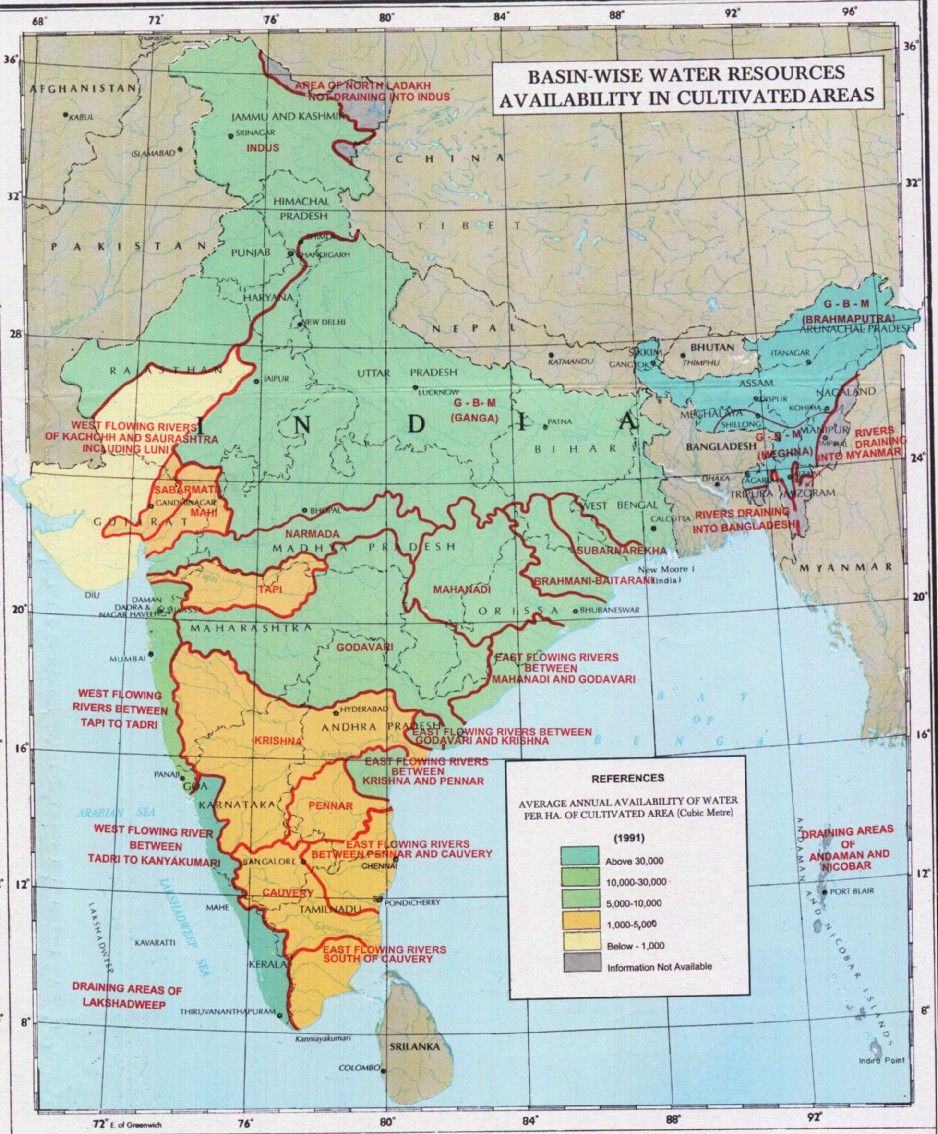Rainfed Agriculture
Using water sustainably in agriculture: Increasing productivity and farm income
Posted on 29 Aug, 2009 01:29 PMAgriculture is a vital sector in India with about 60% of the population engaged in agricultural vocations and contributing to about 30% of the GDP. It consumes about 80% of water used in the country and 76% of the net irrigated area in the country is from ground water sources.
Efficiency of water use in Indian agriculture - Madras Institute of Development Studies
Posted on 29 Aug, 2009 01:10 PMThis paper by the Madras Institute for Development Studies presents estimates of the ‘consumptive use’ of water in crop production; the ratio of consumptive use to gross water utilization; and productivity per unit of consumptive use.
Summary for policymakers: Synthesis of the IPCC Fourth Assessment Report
Posted on 25 Aug, 2009 03:43 PMAltered frequencies and intensities of extreme weather, together with sea level rise, are expected to have mostly adverse effects on natural and human systems.
How does melting ice caps and changing climate affect us? Impact of climate change on major crops
Posted on 21 Aug, 2009 03:51 PMThe UN Panel on Climate Change is informing the world on what damage global warming can cause. But a recent study shows how temperature changes have already hit the global economy and Indian agriculture is suffering the brunt of it.
Impact of climate change in India: An agro - ecological zone level analysis
Posted on 20 Aug, 2009 06:04 PMIndia is gifted with heterogeneous landforms and variety of climatic conditions such as the lofty mountains, the raverine deltas, high altitude forests, peninsular plateaus, variety of geological formations endowed with temperature varying from arctic cold to equatorial hot, and rainfall from extreme aridity with a few cms (<10 cm) to pre humid with world's maxim
Fed by rain - India's rainfed and poorest areas overlap
Posted on 20 Aug, 2009 03:52 PMConsisting mainly of arid and semi-arid areas and the country's 200 backward districts, these rainfed regions are concentrated in 13 states.
Annual average availability of water for agriculture in India as of 1991
Posted on 20 Aug, 2009 02:50 PM
Rashtrita Jal Chetna Yatra: Efforts of Tarun Bharat Sangh and Rajendar Singh in addressing water related concerns across the country
Posted on 20 Aug, 2009 02:20 PMTarun Bharat Sangh and Rajendar Singh started a massive campaign to spread awareness of traditional water harvesting structures in order to restore the water resources of arid Rajasthan. The aim was to popularize the use of such traditional structures across the country.
Collection of articles on climate change with special reference to India
Posted on 20 Aug, 2009 12:36 PMClimage Change, Indias perceptions, positions, policies and possibilities, written by Jyoti K Parikh and Kirit Parikh, Indira Gandhi
Half full, Half empty: A WaterAid publication on the drought and drinking water crisis in Bundelkhand
Posted on 11 Aug, 2009 01:44 PMThis paper on Bundelkhand from their Water and Sanitation Perspective series of WaterAid presents how ecological degradation and faulty policies make drinking water scarce and less accessible.




